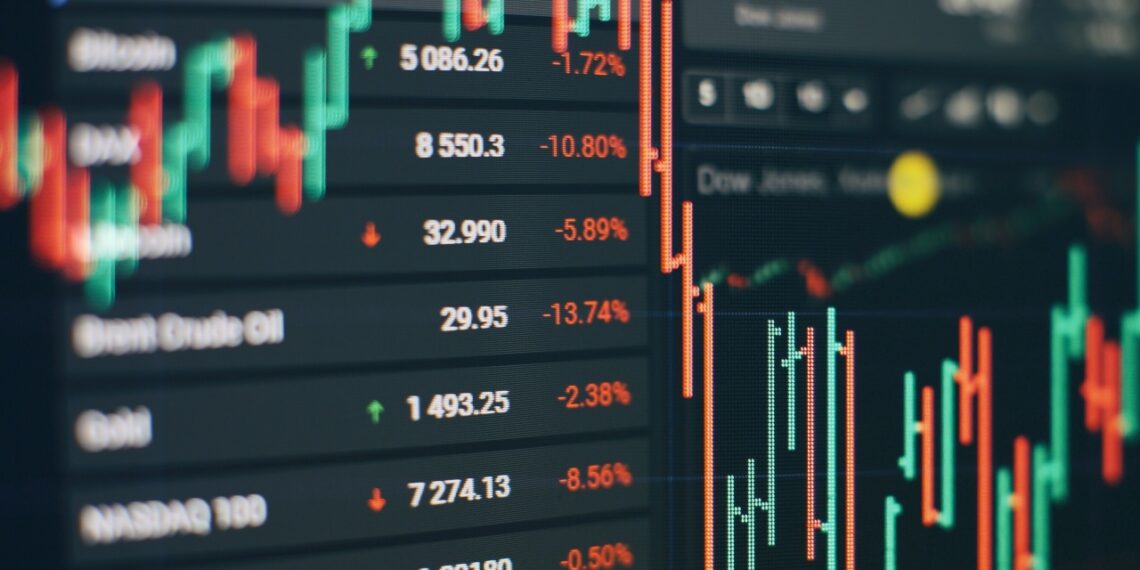No products in the basket.
As of September 23, 2024, Thailand’s SET index closed at 1,447.90, down 3.79 points, with a trading volume of 9,675,591 shares valued at 50,687.49 million Baht. The top five stocks included BDMS (+1.64%), BANPU (-1.35%), KBANK (+0.32%), PTTEP (-0.72%), and EA (+2.79%). Total trading value reached 50,673.11 million Baht.
Key Points
- Market Overview (as of 23 Sep 2024):
- SET Index: 1,447.90 (-3.79), Volume: 9,675,591 shares, Value: 50,687.49 M.Baht
- SET50 Index: 913.23 (-0.36), Volume: 1,482,417 shares, Value: 32,491.58 M.Baht
- SET100 Index: 1,994.12 (-3.74), Volume: 2,651,852 shares, Value: 42,480.55 M.Baht
- Trading Summary:
- Total Trading Value: 50,673.11 M.Baht
- Institutional Net: -184.88 M.Baht, Proprietary Net: +520.33 M.Baht, Foreign Net: +434.81 M.Baht, Individual Net: -770.26 M.Baht
- Top 5 Stocks:
- BDMS: 31.00 (+1.64%), Value: 2,654,802.50
- BANPU: 7.30 (-1.35%), Value: 2,137,136.67
- KBANK: 158.00 (+0.32%), Value: 1,962,346.55
- PTTEP: 137.00 (-0.72%), Value: 1,851,255.60
- EA: 9.20 (+2.79%), Value: 1,844,656.15
Global Market Roundup: A Comprehensive Overview
As of October 2023, financial markets worldwide are grappling with a mixture of economic optimism and looming uncertainties. Investors are navigating through various factors that are shaping market dynamics, including inflation trends, central bank policies, geopolitical tensions, and overall economic recovery signals.
Stock Market Performance
The stock markets in major economies exhibited varied performances. In the United States, the S&P 500 and the NASDAQ showed resilience, buoyed by strong earnings reports from technology and consumer discretionary sectors. Analysts noted that tech stocks, in particular, benefited from an ongoing digital transformation spurred by pandemic-related shifts in consumer behavior. However, concerns over inflation and the possibility of tightened monetary policies by the Federal Reserve caused some volatility.
In Europe, the Stoxx 600 Index reflected a mixed sentiment. While some markets like Germany’s DAX saw gains due to robust industrial production data, others faltered under the weight of persistent inflation concerns and political uncertainties in the UK surrounding Brexit negotiations. Investors are closely monitoring the European Central Bank’s stance, especially regarding interest rates, as many European nations wrestle with higher-than-expected inflation.
Emerging Markets Dynamics
Emerging markets presented a contrast to their developed counterparts. In Asia, Chinese markets faced headwinds due to ongoing regulatory crackdowns and property sector woes, prompting cautious sentiment among investors. In contrast, India’s equity market rallied, driven by strong domestic consumption and favorable government policies aimed at boosting economic growth.
Latin American markets also showed resilience, with Brazil leading the way after a surge in commodity prices, particularly in agriculture and energy. However, political instability in some countries, like Argentina, posed risks that traders were closely assessing.
Commodity and Currency Market Movements
On the commodities front, oil prices stabilized after a period of volatility, as OPEC+ reaffirmed its commitment to curbing production in response to fluctuating demand. Gold prices, a traditional safe-haven asset, continued to linger low due to a stronger dollar and rising yield rates.
In currency markets, the U.S. dollar remained strong against other currencies, driven by expectations of continual interest rate hikes by the Federal Reserve. Conversely, the euro weakened due to inflationary pressures that persisted across the Eurozone.
Discover more from Thailand Business News
Subscribe to get the latest posts sent to your email.














